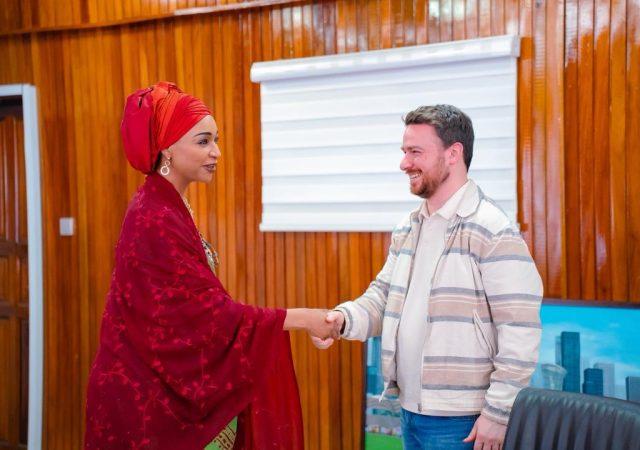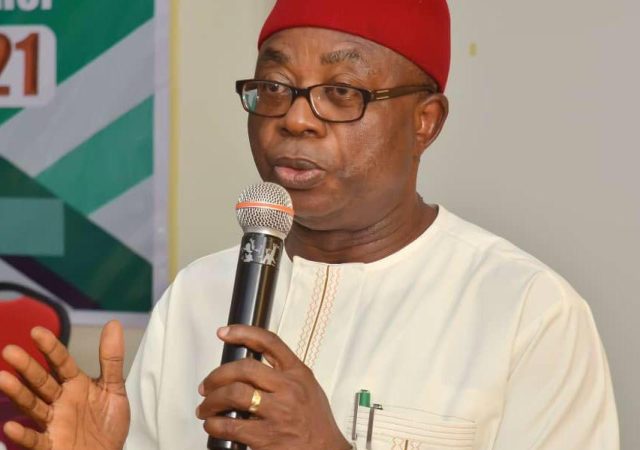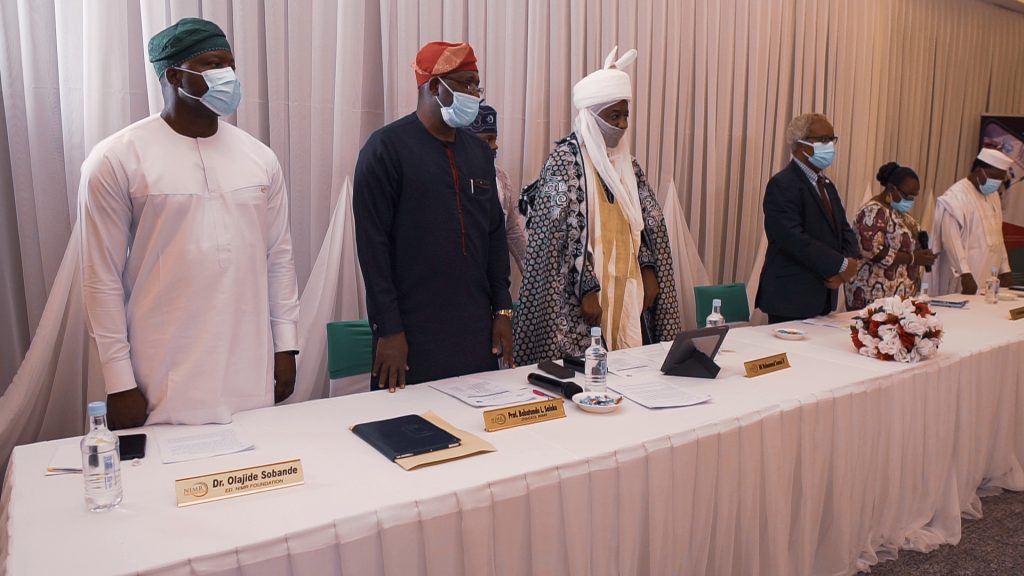
By Sunday Oyinloye
One of the greatest challenges facing Nigeria is lack of funding for research and non-utilization of research findings. The health sector is not left out in this challenge. In the words of the founder of Microsoft, Bill Gates “I believe in innovation and that the way you get innovation is you fund research and you learn the basic facts “
American astronaut, Neil Armstrong, famed for being the first man to walk on the moon also stressed the importance of research when he said “Research is creating new knowledge”
The importance of research in any sector of the economy cannot be overemphasized, therefore, one would have thought that Nigeria would give more attention to research funding and findings, more so when the country faces some of the worst public health challenges including the highest global burden of malaria, a high burden of HIV and tuberculosis, emerging infections such as Lassa Fever, recurrent outbreaks of cholera, meningitis and yellow fever and increasing levels of non-communicable diseases.
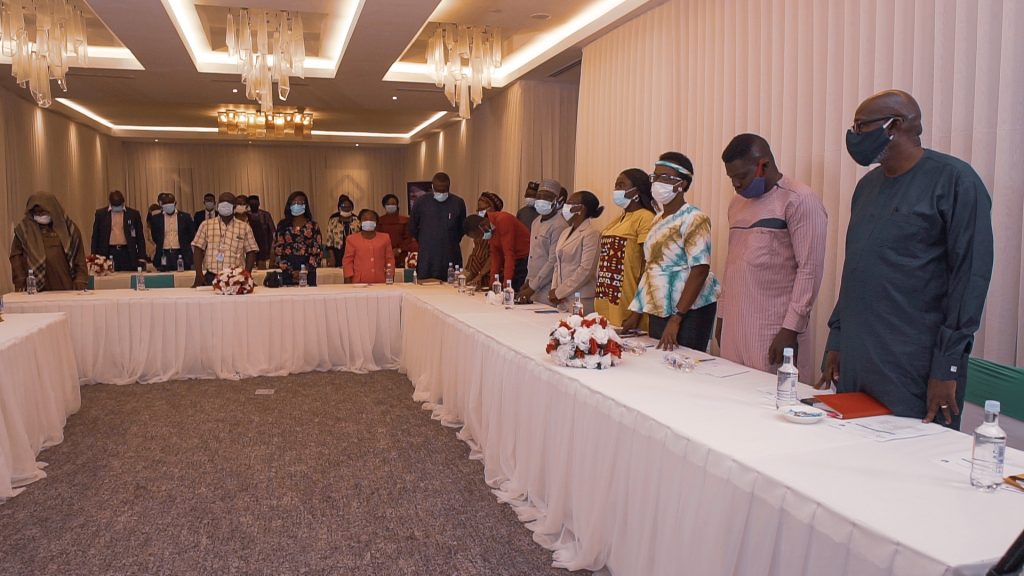
This disconnect has been attributed largely to the insufficient number of world class researchers and scientists to conduct research that inform policy and development of vaccines, medicines and technologies to address the nation’s healthcare needs.
Sadly, many of the best brains are leaving for other countries because of lack of research funds to enable them conduct high quality research in country. This big challenge and others led to the birth of the Nigerian Institute of Medical Research Foundation (NIMR Foundation), a private, not-for-profit organization established by the Nigerian Institute of Medical Research (NIMR) to transform health care research in Nigeria
NIMR itself is the apex medical research organisation charged with the responsibility to conduct research into diseases and conditions of public health importance in Nigeria.
On Tuesday, Media Executives were invited to Lagos to intimate them about what NIMR Foundation is out to do and to seek their support in giving visibility to this very important Foundation coming at a period when the world was hit by one of the worst health challenges in human history, talking about covid-19 pandemic.
The media parley was attended by the Trustees of NIMR Foundation. The Chairman of the Foundation, Mr. Babatunde Raji Fashola, SAN, joined the event virtually while other members of the Trustees were physically present. They are; His Highness Muhammad Sanusi II, Mrs. Moji Makanjuola, MFR, Professor Oye Gureje, FAS, FNAMed, NNOM, and Professor Emmanuel Oni Idigbe,
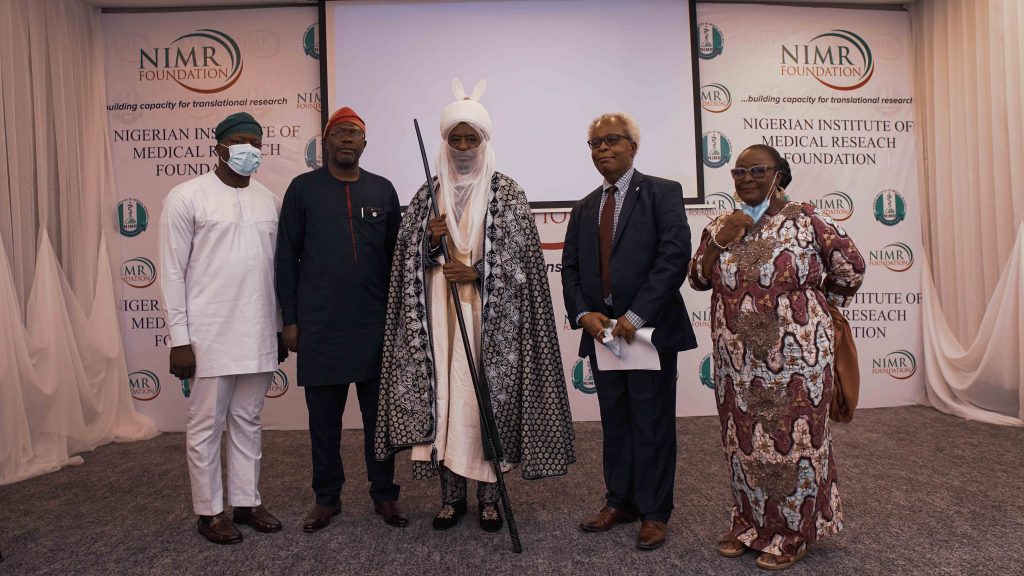
The Director General /CEO of Nigerian Institute of Medical Research, Professor Babatunde Lawal Salako and his management team were also in attendance, same for the Executive Director of NIMR Foundation, Dr. Olajide Sobande.
Professor Salako set the ball rolling in a presentation titled “Overview of the Nigerian Institute of Medical Research.”
The Director-General traced the history of NIMR to 1923, when the Rockefeller Foundation established the Yellow Fever Commission.
According to him” After Nigeria’s independence, the Nigerian Institute of Medical Research was established through the National Science and Technology Act of 1977 which renamed the Medical Research Council of Nigeria as National Institute of Medical Research. This name was further changed to the present-day Nigerian Institute of Medical Research (NIMR) in 1993.
“Today, NIMR is a reputable point of reference in basic, applied and operational research for the promotion of national health and development in Nigeria and we continuously strive to deliver on our mandate despite the many challenges in the environment we operate”
He however revealed that funding to commission research into identified public health priorities remains a major challenge of the institute adding “the Nigerian Institute of Medical Research Foundation was established to work with the private sector as a private, not-for-profit organisation, to fill in the gap in the area of funding for translational health care research in Nigeria.”
Salako disclosed further” Nigeria, although Africa’s largest economy with potentially the highest concentration of medical schools and universities on the continent, faces some of the worst public health challenges including the highest global burden of malaria, a high burden of HIV and tuberculosis, emerging infections such as Lassa Fever, recurrent outbreaks of cholera, meningitis and yellow fever and increasing levels of non-communicable diseases”
The Director-General said that the urgent need to reverse this challenge through a sustained funding mechanism was the reason why NIMR Foundation was conceived.
Speaking on the vision/ mission, funding and operations of NIMR Foundation, the Chairman of the Trustees, Mr. Babatunde Raji Fashola, SAN said the Foundation would do everything that NIMR is currently doing and should be doing given the broad mandate imposed by the Law establishing the Institute back in 1977 from a service perspective stressing “the differentiating factor is that the Foundation will utilise resources mobilized from mostly the private sector rather than depend on funding from Government as NIMR does”
In his words “the foundation will not seek to own laboratory, research or training facilities but will leverage on use of facilities at NIMR and other partner institutions.
“Given the source of funding and the need to demonstrate value for money, NIMR Foundation will prioritize development and implementation of mechanisms to elevate research, innovation and products/ services development in health care as a viable business which can address human suffering in form of diseases and other health-related problems and become a significant revenue stream contributing to the economic productivity of our nation”
Fashola also spoke about the sources of funding. According to him, NIMR Foundation has identified a mix of short-, medium- and long-term revenue streams in mobilizing predictable and sufficient funding for its activities which are: donations from individuals, corporate bodies, and organizations in Nigeria and worldwide, endowments from philanthropists and other well-meaning individuals, grants from individuals, trusts, initiatives, local and international governments, private and non-governmental organizations within and outside Nigeria; and income from commercial ventures and investments
He also revealed categories of people that would befit from NIMR Foundation.
“NIMR Foundation will primarily fund research based postgraduate degree programs of selected junior and mid-level researchers across private and public academic, training and research institutions in Nigeria” he said
A member of the Trustees, Professor Oye Gureje, made presentation on “Research Agenda and Priorities of NIMR Foundation”
Professor Gureje listed areas of focus of the Foundation over the next 5 years subject to revision as and when needed.
They are: Functional food development, Nutrition, Non-Communicable diseases, Road and water traffic crashes road injuries, Diagnostics, Drug discovery and development, Biomedical Engineering, Ageing and geriatric care, Substance abuse, Development of sport medicine and access to medicines and vaccines
Another member of the Trustees, His Highness Muhammad Sanusi II spoke on “Governance, Transparency and Accountability of NIMR Foundation”
In his words: “all donations, endowments and income generated by NIMR Foundation are held in a trust fund in the name of ‘Nigerian Institute of Medical Research Foundation’ by UTL Trust Management Services Limited, a leading asset management and trustees’ services company, appointed by the Foundation.
“The Trustee is responsible for the management of these funds and disbursements are made only in respect of plan of action approved by the Incorporated Trustees of the Foundation and the guidelines spelt out by the Trust Deed.
“This ring-fence the funds mobilized for the defined objectives of the Foundation from any of the stakeholders. This arrangement is meant to ensure accountability and transparency in all the dealings of NIMR Foundation. The Foundation will publish audited report of its financial statements on a yearly basis in line with leading practices for a not-for-profit organization”
Professor Emmanuel Oni Idigbe in a presentation titled “Innovation and Products/ Technologies Development” said one of the major areas of focus of NIMR Foundation is to offer support to innovation and Technology development, helping researchers to turn new concepts and research ideas to commercial success or widespread use.
Professor Idigbe disclosed further that the Foundation would also support invention and creativity to catalyse economic growth through research and development
“NIMR Foundation will be proactive in monitoring its performance and subjecting itself to scrutiny and audit as and when due. The organization has developed a robust monitoring and evaluation system to track its performance across the input, process, output/outcome domains coupled with periodic evaluations to course correct and assess impact” he said
On her part, Mrs. Moji Makanjuola while speaking on “The Media and NIMR Foundation” said NIMR Foundation would deploy a mix of traditional and social media channels to engage all its stakeholders across government, private sector, civil society and community-based organizations and all citizens of Nigeria.
Makanjuola explained that the approach “is to ensure that we have effective means of reaching all our audience and communicate with them according to their preference”.
Giving further insight, the veteran Journalist said: “For the traditional media, the Foundation will hold periodic engagements with media representatives across print, radio and television to reach the vital segment of the population. The Foundation has created handles across the channels of social media and the website of the organization will remain active and regularly updated with all the activities of the Foundation”
The Executive Director, NIMR Foundation, Dr.Olajide Sobande in his remarks called on the media to be the accountability partner on the promises made by the Foundation adding that the Foundation will continue to engage with the media on a periodic basis.
Sobande in his call for action said media practitioners should explore NIMR Foundation’s website “to check out our publications especially the monitoring and evaluation system”
According to him “all our reports, including annual reports and audited financial statements will be published on the website”
The Vice President (West) of Nigerian Guild of Editors, who is also the Managing Editor of ThisDay Newspapers, Bolaji Adebiyi spoke on behalf of the Media Executives.
He pledged the support of the media stressing that Journalists would report more on research.
Now that NIMR Foundation has come on board, it is only wise for corporate organisations and public spirited individuals to support this noble idea. After all, we all have to be healthy to be very productive. Besides, with the caliber of members of the Trustees and the management team of NIMR Foundation, Nigerians will surely be looking at the not-for- profit organization as a sign of good thing to come in the area of medical research.






